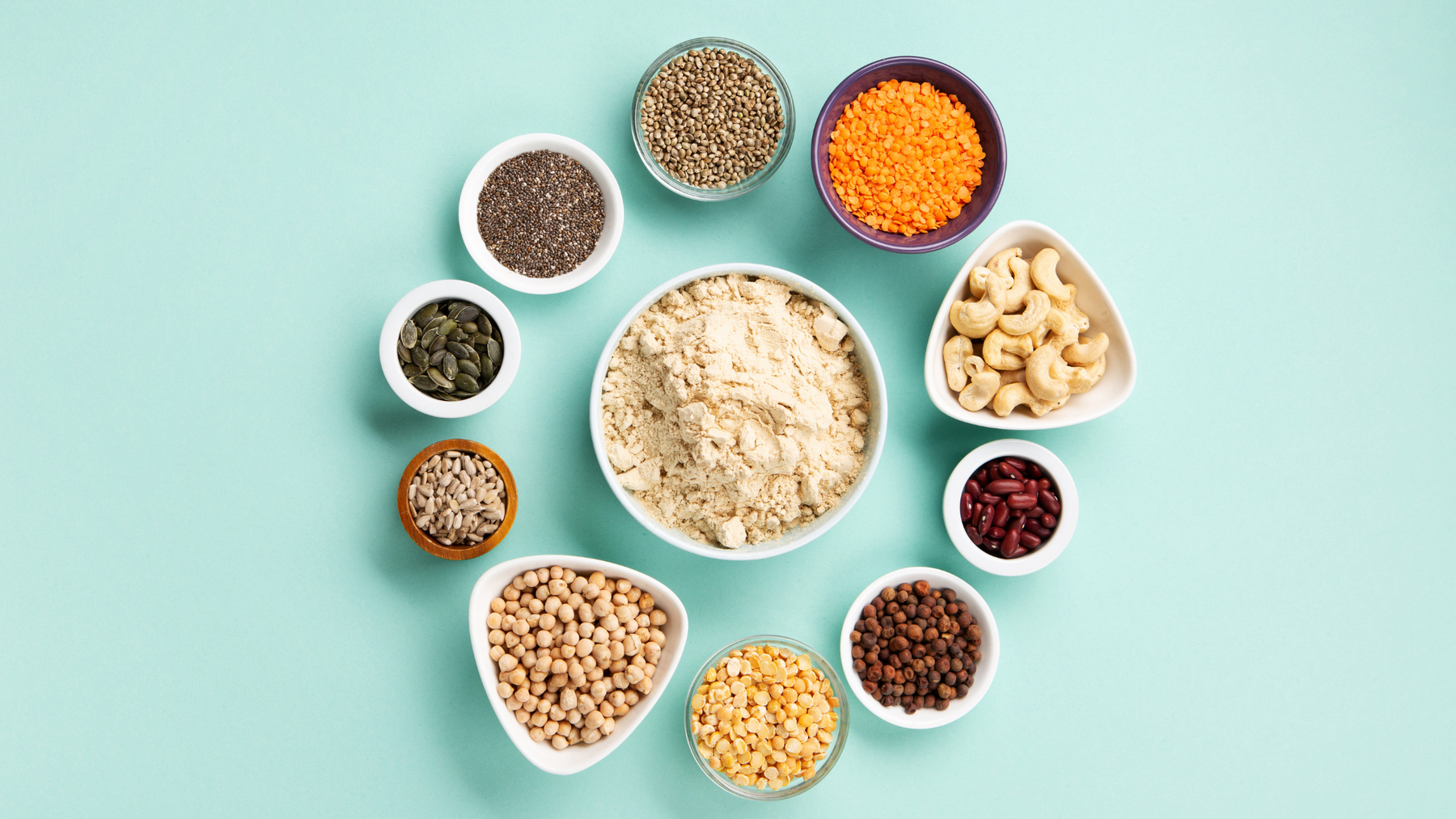
Why Vegan Protein Is Ideal for Plant-Based Athletes
Why Protein Matters for Athletes
Protein is essential for muscle repair, growth, and overall athletic performance. For plant-based athletes, ensuring an adequate intake of high-quality protein is key to achieving fitness goals without compromising on ethical or environmental values. In this guide, we’ll explore why vegan protein is an ideal choice and how it supports plant-based athletes.
Main Benefits of Vegan Protein
Enhanced Recovery: Why Plant-Based Works
Plant-based proteins are rich in antioxidants and nutrients that can accelerate recovery after workouts. Unlike some animal proteins, they’re often easier to digest, reducing the risk of gastrointestinal discomfort that can hinder performance.
Reduced Inflammation for Better Performance
Many vegan protein sources, such as legumes, nuts, and seeds, are packed with anti-inflammatory properties. This can lead to improved joint health, faster recovery, and reduced soreness.
Environmentally Friendly Nutrition
Plant-based diets significantly reduce the carbon footprint compared to animal-based diets. By choosing vegan protein, athletes not only support their performance but also contribute to a more sustainable planet.
Sources of Vegan Protein
Complete Protein Options for Vegans
Some vegan foods, such as quinoa, soy, and buckwheat, provide all nine essential amino acids required for muscle repair and growth. These “complete proteins” ensure that athletes can build and maintain muscle effectively.
High-Protein Foods for Plant-Based Athletes
-
Lentils: 18g protein per cooked cup
-
Chickpeas: 15g protein per cooked cup
-
Tofu: 20g protein per block
-
Tempeh: 31g protein per cup
-
Chia seeds: 5g protein per 2 tablespoons
Vegan Protein Powders: Pros and Cons
Vegan protein powders, such as those derived from pea, rice, or hemp, are convenient options for meeting protein needs. However, they should complement, not replace, whole food sources.
Key Considerations for Vegan Athletes
Protein Timing for Muscle Growth
Distributing protein intake evenly throughout the day helps optimise muscle protein synthesis. Consuming protein-rich meals or snacks every 3-4 hours is an effective strategy.
Balancing Amino Acid Intake
Combining foods like rice and beans ensures a complete amino acid profile. This synergy enhances the nutritional value of meals.
Understanding Digestibility of Plant Proteins
While some plant proteins may have lower digestibility compared to animal proteins, cooking methods and food pairings can improve their bioavailability.
Common Myths About Vegan Protein
Myth 1: Plant-Based Diets Lack Protein
A well-planned vegan diet provides more than enough protein for athletes. Incorporating a variety of sources ensures balanced nutrition.
Myth 2: Vegan Protein Is Inferior to Animal-Based Protein
Recent research shows that plant proteins are just as effective as animal proteins for muscle growth and repair when consumed in adequate amounts.
Myth 3: You Need Supplements to Thrive
While supplements can help, they’re not a necessity. A diverse diet of whole plant-based foods can meet most nutritional needs.
Scientific Support
Studies have demonstrated the effectiveness of plant proteins in supporting muscle recovery and performance. For instance, research from the Journal of the International Society of Sports Nutrition highlights that pea and soy proteins are comparable to whey in supporting muscle development.
How to Maximise Protein Intake
Pairing Foods for Complete Proteins
Combining grains and legumes creates a complete protein profile. For example:
-
Rice and beans
-
Whole grain bread with peanut butter
-
Lentil soup with quinoa
Example Meals and Snack Ideas
-
Breakfast: Smoothie with soy milk, banana, and chia seeds
-
Lunch: Tempeh stir-fry with vegetables and brown rice
-
Snack: Hummus with whole-grain crackers
-
Dinner: Lentil curry with quinoa and spinach
Tips for Tracking Protein on a Plant-Based Diet
Use apps or tools to monitor your protein intake and ensure you’re meeting daily requirements. Aim for a balance of complete and complementary proteins.
FAQs
Is it possible to gain muscle with vegan protein?
Yes, with sufficient protein intake and resistance training, plant-based athletes can gain muscle effectively.
What are the best plant-based protein sources for athletes?
Sources like lentils, tempeh, tofu, and quinoa are excellent for their high protein content and nutrient density.
How much protein does a plant-based athlete need daily?
Most athletes require 1.2-2.0g of protein per kilogram of body weight. This can vary based on activity levels and goals.
Are vegan protein powders safe and effective?
Yes, they are safe and can be effective when used as part of a balanced diet. Look for products free from artificial additives.
Do plant proteins support endurance sports?
Absolutely. Plant proteins provide the necessary amino acids and nutrients for sustained energy and recovery in endurance activities.
What role does fibre play in a vegan diet for athletes?
Fibre supports digestive health, which is crucial for nutrient absorption and overall performance.
Conclusion
Vegan protein is an excellent choice for plant-based athletes, offering a sustainable, nutritious, and effective way to support performance and recovery. By understanding the benefits, sources, and strategies for optimising protein intake, athletes can thrive on a plant-based diet.
Shop our favourite Vegan Protein Powder
More Vegan Supplement top picks
Awesome Supplements Hydrate Electrolytes
Shop the full range of vegan supplements available at Nutrition Now.



